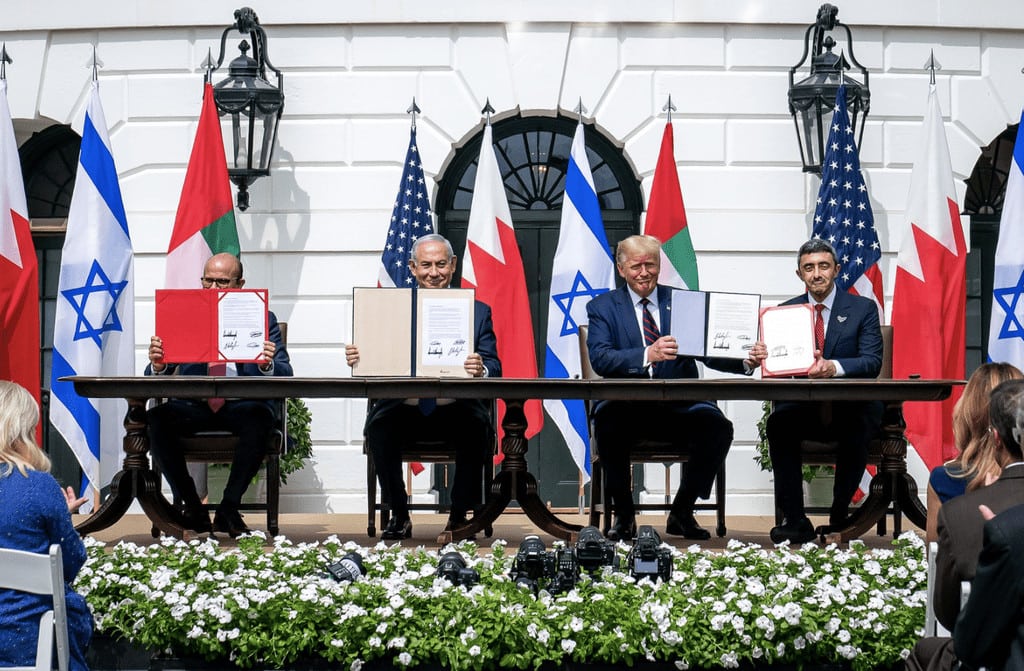What Is America’s Role in Fostering Israeli-Saudi Ties?

Originally published by The National Interest
Israel and its Gulf neighbors have turned to each other to deter what they see as the region’s most dangerous threat—Iran.
Israeli Prime Minister Benjamin Netanyahu is set to meet Saudi Crown Prince Mohammed bin Salman (MBS) in a historic trip to the United Arab Emirates on March 18. Although Israel and Saudi Arabia do not share formal diplomatic relations, the ties between the two countries have bolstered in recent years. Since September 2020, Israel has signed normalization agreements with four Arab countries—an unprecedented feat brokered by the former Trump administration. These collective agreements, known as The Abraham Accords, align Middle East neighbors who prioritize the same security concern—Iran.
- America’s Supercarriers Are Back in Force in the Pacific - December 30, 2025
- Israel’s $2 Iron Beam Laser Could Disrupt Missile Warfare - December 23, 2025
- US Stands Up New Drone Strike Force in the Middle East - December 9, 2025
